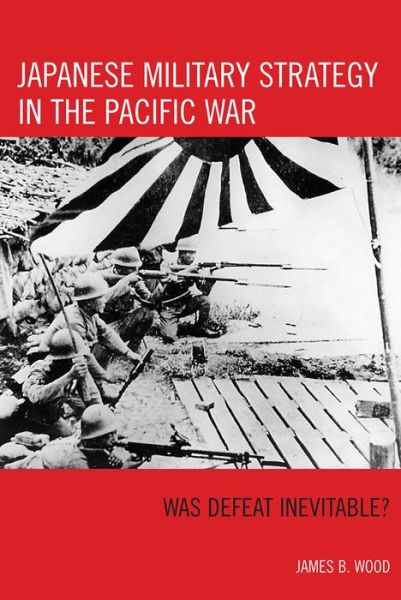Japanese Military Strategy in the Pacific War: Was Defeat Inevitable? epub
Par palmer jose le lundi, février 1 2016, 22:35 - Lien permanent
Japanese Military Strategy in the Pacific War: Was Defeat Inevitable? by James B. Wood


Japanese Military Strategy in the Pacific War: Was Defeat Inevitable? James B. Wood ebook
Format: pdf
Page: 152
ISBN: 9781461638087
Publisher: Rowman & Littlefield Publishers, Inc.
PRC analysts are convinced that Washington is using its “pivot” to Asia or rebalancing strategy to perpetuate US dominance in the Asia-Pacific with a specific objective of containing China.24. To consider how likely a Sino-US and/or Sino-Japanese cold war is, this article analyzes the national identity dimension of China's relations with the United States and Japan, assessing how identities are constructed and how changing identity discourses are linked to foreign . It is common to read that cultural constraints (a legacy of the atomic bombardment, defeat and occupation endured at the end of World War II) rule out a change in Japan's national security strategy. In WW2, Japan was not targeted because she wanted to "conquer the world," but because her military stood in the way of Communism, and her nationalism in the way of world government. Woodrow Wilson Was a White Southerner Who Defeated the Historic Opportunity for Racial Equality. By James Perloff Stalin maintained a nonaggression pact with Japan during the war, but at the "Big Three" conferences at Teheran and Yalta, President Roosevelt asked Stalin if he would break the pact and enter the Pacific war. Jul 19, 2012 - However, the United States' strategy to occupy Japan shifted as the world entered into the Cold War period and containing communism and the Soviet Union became the first priority in United States foreign policy. May 22, 2014 - He is the author of Japan: Beyond the End of History, Japan and the Enemies of Open Political Science and Defending Japan's Pacific War, all published by Routledge. Jun 23, 2011 - The target of Hiroshima was a city of considerable military importance, containing Japan's Second Army Headquarters, as well as being a communications center and storage depot. And the Nationalists was inevitable, the United States waited for the outcome of the Chinese Civil War to recognize the new government in China with the hope of seeking cooperation with that new government to keep balance in Asia vis-à-vis the defeated Japan[9]. Without having any particular view of Tojo Hideki or whatever, it's very useful for American and British military historians to exploit this expression to understand better what actually happened. Apr 15, 1995 - But after Gettysburg and Vicksburg in 1863, the reality of US military and naval superiority forced London to come to terms with the inevitable persistence of the United States on the world scene as a great power for another century and more. Dec 17, 2013 - The rising power, having lived under a political-military-cultural-institutional order that reflects the preponderance of the reigning hegemon, and that therefore protects and advances its interests, grows in confidence.